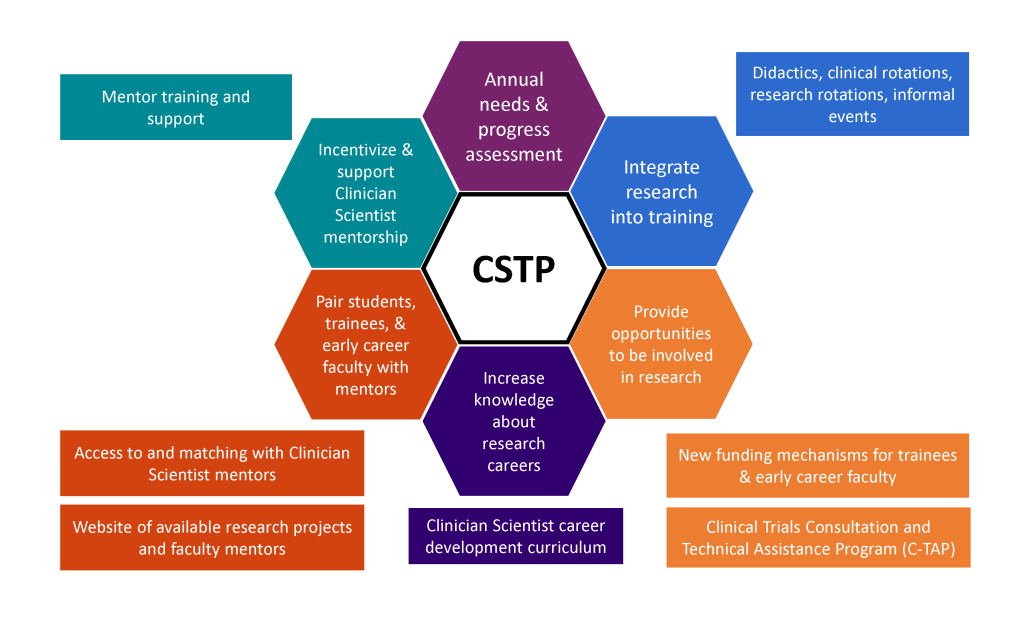Main Challenge
The UW has some of the largest research programs in behavioral health in the world, but only a relatively small number of our medical students and psychiatry residents actively participate in research during their training. According to the latest Missions Management Tool published by the Association of American Medical Colleges, the UW School of Medicine ranks above the 90th percentile for total research federal grants and contracts, but only about half of our medical school graduates and an even smaller proportion of our psychiatry residents participate in research during their time with us.
Our Approach
We will develop Clinician Scientists by identifying, engaging and supporting students, trainees and early career faculty who are interested in research.
Key strategies:

Contact
Jesse Fann, MD, MPH
Director of the Clinician Scientist Training Program
Mark N. Tabbutt Endowed Professor for Education in Brain Health
fann@uw.edu
Andie Uomoto, MPA
Project Manager of Strategic Initiatives
uomotoa@uw.edu
